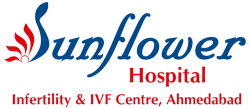

Arrange for someone to help you during your first few weeks at home. Avoid strenuous housework and heavy lifting. If you have older children who want to be held, sit down in a chair and have them climb into your lap. Limit unnecessary stair climbing; keep baby supplies and your supplies both upstairs and downstairs.
Try light housework when you feel ready. Putting your baby in a carrier or baby sling while you clean may be helpful.
Take several rest periods during the day, and try to nap while the baby is sleeping. You will need the extra rest!
Feel free to go for short walks unless you are feeling dizzy or weak. Take someone with you at first. Ask your nurse about exercising. Start with non-strenuous exercises such as abdominal tightening and Kegel exercises. Avoid more strenuous exercises until after your six-week check-up with your physician.
Do not attempt intercourse until “lochia” (a blood and fluid discharge from the vagina after a baby is born) stops and your stitches are healed. You may still have some tenderness if you had an episiotomy. Discuss family planning methods with your doctor. (Remember that only latex condoms used with contraceptive foam, cream or gel containing non-oxynol 9 can kill the virus that causes AIDS and protect you from sexually transmitted diseases such as syphilis, gonorrhea, Chlamydia and herpes.)
If you are breastfeeding, your nurse/doctor will provide you with instruction.
To avoid constipation, drink plenty of fluids (water, apple juice are especially helpful); eat fresh fruit and vegetables.
You may experience the “baby blues”-unexpected mood swings and tearful feelings right after having the baby. This is normal. But if the feelings do not go away after about two weeks, you may have a more serious depression and should contact your physician. Be aware of these symptoms